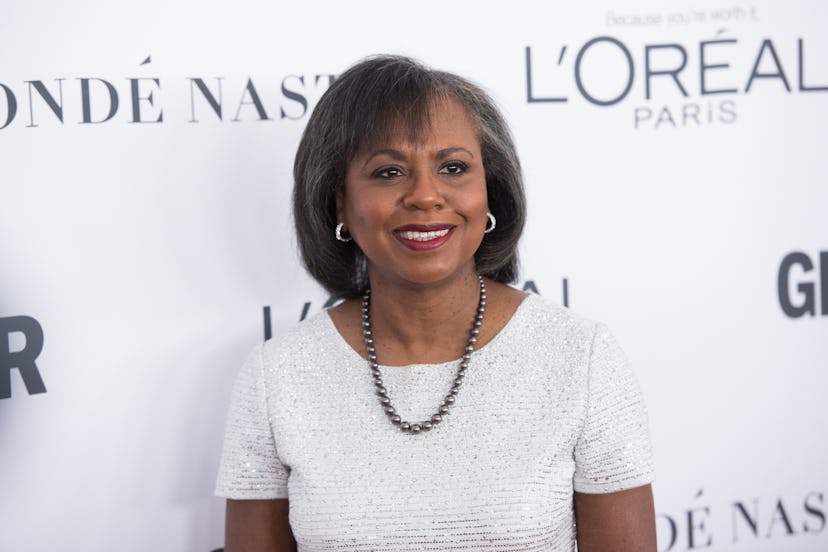Anita Hill Went to Hollywood and Schooled Them on Sexual Harassment

Years before the women who took down Bill Cosby or Roger Ailes or Harvey Weinstein, Anita Hill testified in front of congress about being sexually harassed by Clarence Thomas, and though she was belittled and mocked then (even by now-allies like Joe Biden) and Thomas was confirmed to and still serves on the Supreme Court, Hill’s testimony and public moment paved the way for our current conversation around sexual harassment and assault in the workplace and beyond. Now a lawyer and a professor at Brandeis, Hill spoke to a crowd of entertainment industry professionals at an event at the United Talent Agency (UTA) about what’s changed since she brought harassment to the public consciousness in 1991, what hasn’t, and what we need to do next.
“I never believed that 1991 was the end,” she said in a discussion with Fatima Goss Graves, the CEO of the National Women’s Law Center. “That wasn’t the defining moment for me or this issue. I knew that there was support, that there were people out there, that there was a lot to learn and there was a lot of work to do. But it wasn’t over.”
One step in the right direction is recognizing that not all harassers are “monsters,” said Hill, according to The Hollywood Reporter. “It’s people we otherwise admire, give awards to, vote into office and mourn the loss of when held accountable.” Not everyone’s a Weinstein; there are Frankens in our midst, too.
Added Goss Graves, “For the first time, when women told their stories, they were not immediately disregarded, doubted and shamed. That has resulted in more and more women coming forward…I do not think you can put that back in a box.”
But ultimately, naming and shaming individual predators won’t fix what’s broken. It’s a systemic problem that needs a systemic solution. The laws have to change and the laws have to be enforced. “It’s a good idea to start with institutions, to put in the structure, put those laws in place. I think one of the things that maybe we didn’t do enough of or haven’t thought enough about historically in terms of moving cultures around civil rights is that we have to make cultural change in education, in training, in public awareness, an ongoing effort,” explained Hill, per USA Today.
Acknowledging that she was speaking to a crowd of media and storytelling professionals, Hill recommended that Hollywood could do a better job of showing the way harassment works. “One of the reasons [victims] have been historically dismissed is that we have this problem of sexual harassment coming out of the movies as being the boss chasing the secretary around the room. Sexual harassment becomes a punchline as opposed to a real serious problem that impacts people’s lives, deprives them of their opportunities, and, in many cases, can deprive people of their ability to make a living. This moment calls for an examination of those kind of representations. But, also, an examination of who is in control of content and how we can make sure it better reflects the realities of our situation,” she said, per Vanity Fair.
The day before the event, longtime California senator Dianne Feinstein thanked Hill for her work on Twitter, echoing what many must be feeling in this moment: “This movement to root out harassment and assault started with Anita Hill. We owe her a debt of gratitude. Our culture is finally catching up. Thank you, Anita, for your courage.”
Thank you, thank you, thank you.
Related: Jessica Chastain Says a Famous Male Actor Told Her to “Calm Down” About Harvey Weinstein